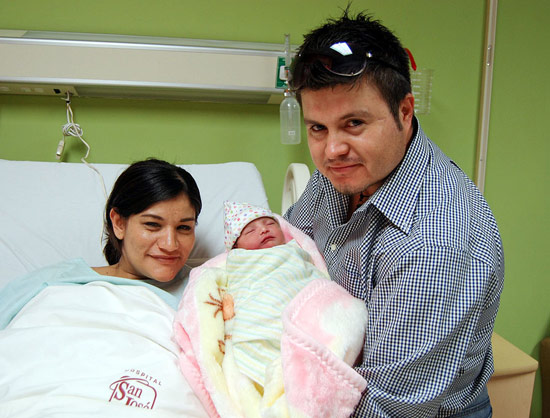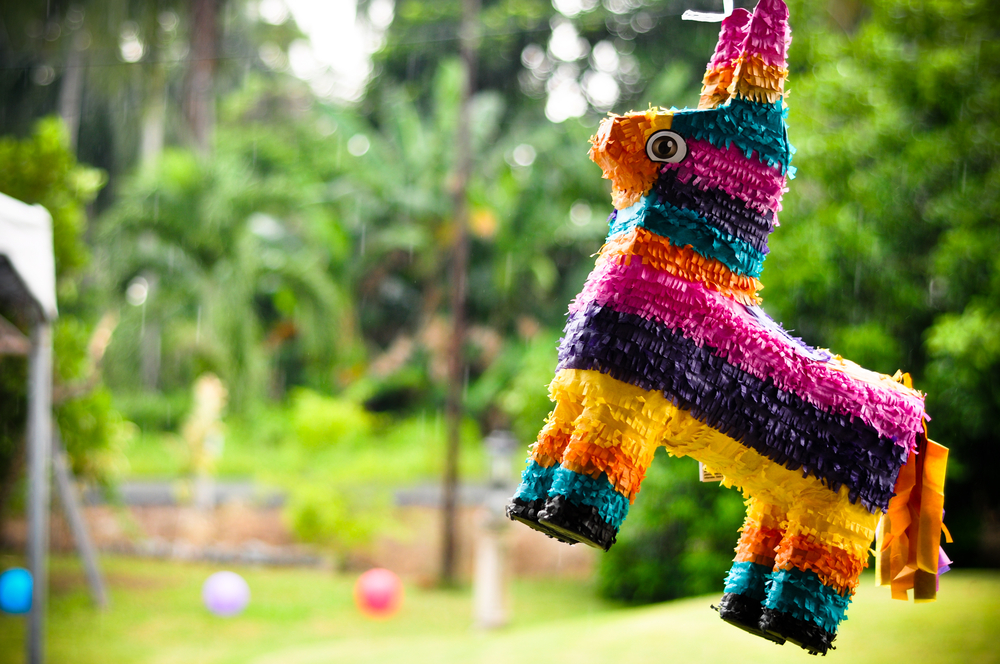Life Stages: Birth
Family Cornerstone
The Mexican life cycle has influences from both its indigenous civilizations and its Spanish colonizers. In general, the family and the Roman Catholic Church are the cornerstones of all major life events. In Mexican culture, birth is viewed as the most essential event of family life. In the Mexican view, a newborn immediately becomes part of the Mexican family system, which is the “hub” of society that binds people into intimate relationships.
Expectant mothers do not attend funerals, visit cemeteries, or associate with any death-related events. In case of pregnancy during a lunar eclipse, Mexican women wear clothes ornamented with safety pins around their stomach or tie a red ribbon with keys around their waist, in the belief that this will prevent any physical deformation of the fetus. New mothers and newborns generally stay within the house for 40 days to prevent diseases and complications. Mexican mothers typically carry their babies on the back, close to the chest, or over the hip in a rebozo (a strong sling-like scarf).
Nearly all births in Mexico take place under the care of skilled attendants. In some parts of northern Mexico, trained personnel supervise water birthing. While birthing in private hospitals is a costly affair, urban women having employer’s seguro social (health insurance) prefer state-run or public hospitals. Maternal health care is limited in the countryside, however, so poor rural women commonly give birth at homes with the help of mothers or midwives. The average infant and maternal mortality rates are 13 deaths per 1,000 live births and 33 deaths per 100,000 live births, respectively.
Mayan children of the Yucatan traditionally underwent a hetzmek ceremony a few months after their birth. During this ceremony, families named the babies and introduced them to various tools.
Cultural Beliefs
Mexicans strongly believe in the effects of the mal de ojo (evil eye). They believe that the mal de ojo can inflict illness, calamity, misfortune, and even death. Consequently, they ensure that strangers (supposedly with a “strong evil vision”) who admire the baby touch him or her on the head to indicate that they do not harbor envy or cast mal de ojo. Mexican families also give babies an amulet bracelet or a “sweeping” with a raw chicken egg or a bunch of basil on the body to avert evil influences and provide protection. They may also tie medidas, or blessed ribbons, on a child to prevent disease.
All Mexicans, including those in Amerindian communities, perform baptism and confirmation rites for their children. The baptism is performed shortly after the birth of a child and involves their naming and the appointment of padrinos and madrinas (godmothers and godfathers) to look after the children in the event of the parents’ deaths. Mexican children also often ask their godparents for assistance in finding a job or even bearing their wedding expenses (including buying the wedding rings). Co-parents (comadres and compadres) are also often designated for a child and participate in his/her upbringing. The high prevalence of parentelas (extended families) means that Mexican children also have many aunts, uncles, and cousins to look after them. All of these factors ensure both care and financial support for the children throughout their childhood and adulthood.
Mexicans traditionally hold parties on their children’s birthdays and give them many gifts. The celebrations include visiting the church, getting blessings from the priest, and partying with family, friends of the children, and close relatives. The main attraction of Mexican birthday parties for 300 years has been the piñata, a large, colorfully decorated papier mache container usually shaped like an animal and filled with candies, toys, and/or coins. The hosts typically hang the piñata on a rope from the ceiling, while the blindfolded children take turns trying to smash it open with a stick so the goodies can spill out.
Abortion is illegal and a criminal offense in Mexico. However, it is allowed in cases of rape, incest, the early detection of a deformed fetus or congenital disease, or to save the pregnant woman’s life. According to estimates, there are 600,000 to one million pregnancies ended by illegal or unsafe abortions every year, and these are one of the primary causes for maternal mortality among women. Modern birth control methods are not widely available.
Copyright © 1993—2024 World Trade Press. All rights reserved.

 Mexico
Mexico 
